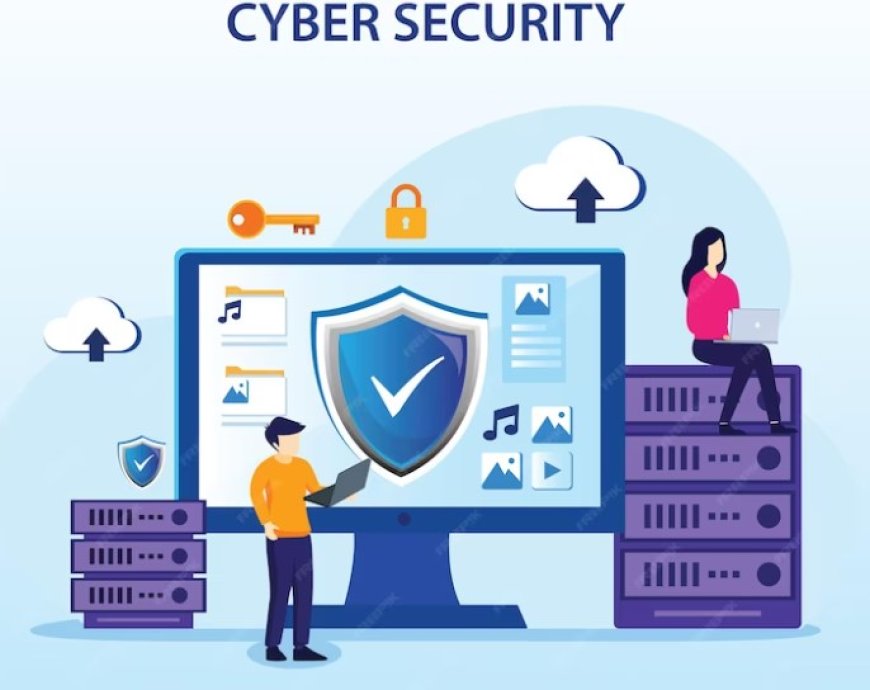What are the latest trends in cybersecurity?
Stay updated on the latest trends in cybersecurity and learn about the emerging technologies, threats, and strategies shaping the field of cybersecurity.

In today's world, where everything is connected through the internet, keeping our digital information safe is more important than ever. This is where cybersecurity comes in. It's like a shield that protects our online world from bad actors who want to do harm. Imagine it as a lock on your front door, but for your digital life.
You might be surprised to know how fast cyber threats are changing. It's like a race between the good guys (those protecting us) and the bad guys (those trying to break in). This means we have to keep up with the latest tricks and tools they use. It's a bit like staying updated on the newest games or gadgets - you want to know what's out there so you can stay ahead.
Understanding the latest trends in cybersecurity is like having a secret weapon. It's not about being a computer expert, but about knowing what to look out for. Just like you know to look both ways before crossing the street, knowing about cybersecurity trends helps you navigate the digital world safely.
So, why is all of this important? Well, think about all the things you do online - from chatting with friends to doing homework or shopping. You wouldn't want anyone peeking into those activities, right? That's why we need to be aware of cybersecurity trends. It's about taking control and making sure we're safe and secure in our online adventures.
Challenges and risks associated with outdated security measures
Using outdated security measures in the digital world is a bit like having an old lock on your front door. It might have worked well in the past, but times have changed, and so have the tricks of those trying to break in. Here are some challenges and risks linked to using outdated security measures:
1. Vulnerabilities: Just like old locks can be picked more easily, outdated security can have weaknesses that cyber-criminals know how to exploit. They look for these weak spots to gain access to your data.
2. Data Breaches: If your security isn't up to date, there's a higher chance that your personal information, like passwords or credit card details, could be stolen. This can lead to identity theft or financial loss.
3. Malware and Viruses: Old security may not be as effective in detecting and blocking harmful software. This means your devices can get infected with viruses or malware, slowing them down or causing other problems.
4. Legal Consequences: In some cases, using outdated security measures might even lead to legal troubles, especially if you're not complying with privacy and data protection laws.
5. Loss of Trust: If you're a business or service provider, using outdated security can lead to a loss of trust among your customers. They want to know their information is safe when they interact with you.
6. Costly Remediation: Fixing the damage caused by a security breach can be very expensive. It's often much cheaper to invest in up-to-date security from the start.
So, just like we update our locks to keep our physical belongings safe, it's crucial to keep our digital locks (security measures) up to date to protect our online life from potential risks and complications.
What are the latest trends in cybersecurity?
The Latest Trends in Cybersecurity:
Zero Trust Security Model: The first trend we need to explore is the Zero Trust security model. In the past, it was common to trust everyone inside a network. But now, with more remote work and cyber threats, the Zero Trust model assumes that no one should be trusted automatically, even if they are inside the network. This model requires verification from anyone trying to access your digital assets, making it much harder for unauthorized access.
Artificial Intelligence and Machine Learning in Threat Detection: Think of this as having a digital security guard that's incredibly smart. AI and machine learning are being used to detect patterns and anomalies in your digital environment. They can spot unusual activities and potential threats faster than humans, helping to protect your digital assets effectively.
Multi-Factor Authentication (MFA) and Biometrics: Passwords alone are no longer enough. MFA adds an extra layer of security by requiring multiple forms of identification, like a password, fingerprint, or facial recognition. This makes it much harder for cybercriminals to access your accounts, even if they somehow know your password.
Cloud Security and Zero-Day Vulnerabilities: As more data moves to the cloud, securing it is crucial. Also, there are zero-day vulnerabilities, which are unknown flaws in software or hardware. Cybersecurity experts are working to identify and patch these vulnerabilities before cybercriminals can exploit them.
Cybersecurity for the Internet of Things (IoT): More devices in our homes and workplaces are connected to the internet. This includes smart thermostats, doorbells, and even refrigerators. The challenge is to ensure that all these devices are secure and can't be hacked to gain access to your network.
Ransomware and Cyber-Resilience Strategies: Ransomware is a type of malware that locks your data until you pay a ransom to the cybercriminals. It's a big problem. Cyber-resilience strategies involve preparing for attacks, so even if one occurs, you can recover without paying the ransom.
Data Privacy and Compliance Regulations (e.g., GDPR, CCPA): Data privacy is a growing concern, and regulations like GDPR and CCPA are designed to protect your personal information. It's important to understand these regulations, especially if you're a business handling customer data.
Why You Need to Be Aware of These Trends:
-
Protecting Valuable Information: We store a lot of valuable information online, from personal photos to financial details. Staying updated on cybersecurity trends helps ensure that your information stays safe.
-
Financial Security: Cyberattacks can be costly. Businesses can lose a lot of money due to data breaches, and individuals can have their bank accounts emptied. Being aware of the latest trends can save you from these financial headaches.
-
Reputation Matters: For businesses, a data breach can seriously damage their reputation. Customers trust companies with their information, and a breach can shatter that trust. Individuals also need to protect their online reputation.
-
Legal Consequences: Many places have laws about data protection. If you don't stay updated on cybersecurity and a breach happens, it could result in legal trouble for both businesses and individuals.
-
Peace of Mind: Knowing you're following the latest cybersecurity trends brings peace of mind. You can go about your digital life with confidence, knowing you're taking the necessary steps to protect yourself and your information.
The world of cybersecurity is evolving quickly, and staying informed about the latest trends is essential for protecting your digital assets. By understanding these trends, you can better safeguard your information, your finances, and your reputation. So, let's all learn to navigate the digital world securely and stay one step ahead of the cyber threats.
Staying updated on cybersecurity trends is like regularly checking your home's locks and alarms. It's a way to keep yourself safe in the digital world. I encourage you to take action and adopt the latest security practices. It's not just for tech experts; anyone can learn to protect themselves and their information.Remember, the cyber world keeps changing, so your vigilance is essential. It's a bit like being watchful while crossing a busy street, always on the lookout for potential risks.
Lastly, keep learning and staying aware. Education is your best defense. Just like you learn new things every day, make cybersecurity awareness part of your daily routine to maintain a strong and secure online presence. Together, we can all navigate the digital world safely.



























































